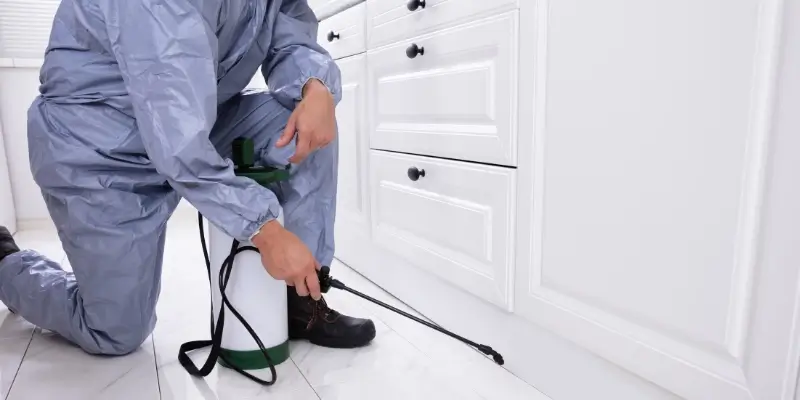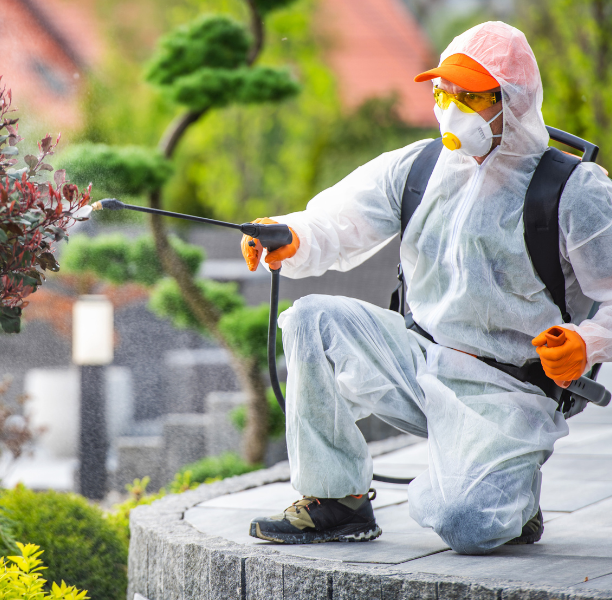Safe and Trusted Pest Control for Lasting Protection
Reliable insect management requires a complex technique that balances environmental integrity with the demand for effective parasite suppression. The subtleties of these techniques might not be promptly clear, prompting a more detailed evaluation of the techniques that can lead to sustainable bug control outcomes.
Comprehending Pest Control Approaches
Insect control includes a variety of techniques targeted at handling and getting rid of unwanted bugs and rats that can threaten both health and wellness and home. Recognizing these methods is critical for effective bug monitoring.
The primary classifications of parasite control approaches include mechanical, biological, and chemical techniques. Mechanical approaches involve physical barriers and traps to avoid parasite entry and capture unwanted species. Using screens on windows or utilizing sticky catches can dramatically reduce pest populations without introducing damaging compounds - exterminator coquitlam.

Chemical parasite control is often the most identified method, using chemicals to get rid of pests. These chemicals can be efficient but should be used with caution to prevent damaging impacts on non-target types and the environment.
Advantages of Eco-Friendly Solutions
Exactly how can green options transform pest control techniques? The adoption of eco-friendly bug control techniques offers countless benefits, significantly boosting the effectiveness and safety and security of bug management (exterminator coquitlam). These options utilize natural active ingredients, decreasing the dependence on dangerous chemicals that can posture risks to human health and the environment. This change not just safeguards family members and pets but likewise decreases the potential for soil and water contamination.

Another advantage is the favorable influence on neighborhood biodiversity. Green remedies are designed to target specific parasites while maintaining beneficial pests and wild animals, promoting a balanced ecosystem. This approach straightens with the expanding consumer demand for sustainable techniques, boosting the track record of insect control providers.
Integrated Parasite Monitoring Methods
The application of eco-friendly solutions normally causes the adoption of Integrated Parasite Administration (IPM) techniques, which further boost insect control efficacy. IPM is an all natural method that combines multiple methods to handle insect populations while decreasing environmental impact. This approach highlights making use of biological, social, mechanical, and chemical controls, making sure a balanced and sustainable technique of insect management.
One essential aspect of IPM is the comprehensive analysis of insect task and environmental problems. By keeping track of pest populaces and identifying their life cycles, experts can execute targeted treatments that disrupt the bug's environment or lifecycle, decreasing dependence on chemical pesticides. In addition, cultural methods such as plant rotation and habitat control can great site considerably reduce parasite establishment and recreation.
Another important component is using organic control agents, such as useful insects or microbes, which can naturally suppress bug populaces. When chemical applications are needed, IPM prioritizes the use of low-risk pesticides and applies them precisely, decreasing exposure to non-target microorganisms and people.
Incorporating IPM approaches not only enhances parasite control effectiveness yet also advertises a more secure ecological community, lining up with the growing demand for sustainable methods in bug administration.
Safe Practices for Home Owners
Recognizing the significance of risk-free methods in parasite control can encourage homeowners to efficiently handle parasite issues while protecting their health and wellness and the atmosphere. Applying preventative measures and safe approaches is crucial in minimizing direct exposure to unsafe chemicals.
Homeowners should initially evaluate their setting for conditions that attract bugs, such as standing water, clutter, and food waste. On a regular basis cleaning and securing entrance factors can deter parasites from getting into the home. Utilizing all-natural deterrents, such as essential oils or diatomaceous planet, can provide effective choices to chemical pesticides.
When chemical therapies are needed, homeowners need to choose items that are particularly classified as risk-free for property usage. It is vital to follow application standards diligently to avoid too much exposure. Furthermore, utilizing targeted therapies in locations where pests are determined, instead than covering spraying, can substantially lower chemical use.
Last but not least, maintaining open communication with bug control specialists is vital. Property owners must make inquiries about the safety of products utilized and request eco-friendly options whenever possible. By adopting these safe fumigation cost methods, house owners can produce a much healthier living setting while properly taking care of pest issues.

Tips for Long-Term Defense
Establishing an insect administration technique that emphasizes long-term protection can greatly boost the performance of the secure methods previously talked about. To achieve this, homeowners need to apply routine evaluations of their home, focusing on concealed locations such as attics, basements, and crawl rooms. Early discovery of insect task is crucial in protecting against invasions from taking hold.
In addition, keeping a clean environment is essential. This includes proper food storage space, immediately cleaning spills, and consistently disposing of garbage. These techniques decrease attractants that draw bugs into the home. Furthermore, securing entrance factors, such as fractures around doors and windows, can efficiently obstruct potential bug accessibility.
Landscaping must additionally be thought about; maintaining plants trimmed and preserving a range between greenery and the home decreases hiding why not try this out places for insects. Making use of natural deterrents, such as important oils or diatomaceous planet, can additionally discourage problems without turning to harsh chemicals.
Last but not least, teaming up with a professional parasite control service for routine examinations can offer an added layer of protection. These professionals can offer customized referrals and advanced therapies, making certain that your home stays shielded against insects in the long-term.
Final Thought
In final thought, trustworthy and risk-free pest control calls for a multifaceted strategy that highlights environmentally friendly techniques and incorporated pest administration. By executing natural deterrents, carrying out routine examinations, and keeping correct sanitation, homeowner can substantially decrease insect populations while protecting beneficial insects and the setting. Cooperation with expert bug control services enhances the performance of these strategies, making certain customized options that offer long lasting protection and assurance against future infestations.
Efficient insect management requires a complex technique that balances ecological honesty with the requirement for efficient insect suppression. The adoption of environment-friendly insect control techniques uses many benefits, significantly enhancing the effectiveness and safety of insect monitoring.The execution of eco-friendly options normally leads to the adoption of Integrated Bug Management (IPM) methods, which further enhance bug control efficacy. exterminator coquitlam. By checking insect populaces and identifying their life cycles, professionals can implement targeted interventions that interfere with the pest's habitat or lifecycle, minimizing dependence on chemical pesticides.In conclusion, trustworthy and secure insect control needs a complex approach that highlights green methods and integrated insect monitoring